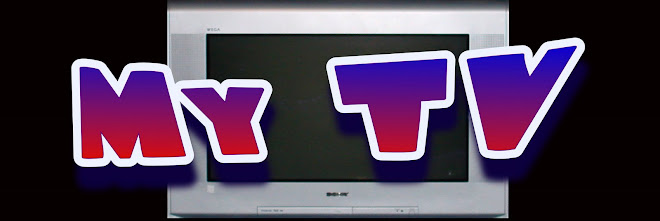by Rachael Nisenkier
I’ve been trying to think of a way to explain the way that Supernatural changes in season 4. I’ve already explained in detail the appeal that the show has to me, but there’s been a profound change in the show’s fourth season that has somehow fundamentally altered my opinion of the show.
That’s pretty neutral language up there. Standing, as I am, in about the middle of the fourth season, I’m not quite ready yet to pass judgment on the change, but I think it’s an interesting one none the less. When Season Three (SPOILER ALERT) saw Dean make his way to hell, I expected that to have ramifications. Id even been tipped off to the idea that the universe was about to get a heavenly dose of interference. But what I didn’t expect was for both the consequences and the seemingly dues ex machina usage of the angels to spring Dean from the pit to lead to such thematically rich and intriguing territory.
To be perfectly honest, I don’t think that I knew that Supernatural was capable of all this.
So first off, to the obvious change: Season Four sees the addition of Angels to the traditionally demons, ghosts and ghouls ethos. I was at first quite wary of the introduction of Heaven to Supernatural’s Hell, if only because playing directly with God is a dangerous road. Gods with the s on the end? Sure, okay, I’ll bite, but when fantasy starts sincerely considering monotheism I start to get a bit wary. And if you’re going to play with it, make sure you know what you’re doing.
I’m still not sure Supernatural entirely knows what it’s doing, but I’m less nervous. Angels as personified by Castiel and Anna are just as diverse and fascinating a branch as the demons they fight against. And the Divine is not so direct a presence as to Aslan our hunters out of significance. That is to say, the Angels neither work for so unambiguously the good and kind creator nor do they always show up to save the day. That’s still up to Sam and Dean. And by keeping the powers that be ambiguous (reference entirely intentional) rather than infallible, the show has avoided the pit of much religious literature (or merely literature that deals with the religious). If God is always right, and our heroes can communicate with God, then our heroes are no longer anything more than cogs in a heavenly machine, and are therefore no longer interesting. Luckily, we have Dean calling angels “dicks with wings” to help settle the score.
And speaking of ambiguity, outside of a Whedon show (or possibly Game of Thrones) I’ve rarely seen fantasy tropes played with as effectively as they are here. Dean, who for the first few seasons remained stalwart if somewhat bigoted to the supernatural, comes back from hell not the noble martyr he went down there as, but as a flawed, weak, and broken young man. I thought there’d be consequences, sure, but I didn’t expect to find out that the man who we have spent three seasons investing in will turn out to have given in to evil and despair and possibly brought on the apocalypse. That’s a damn bold move for a show that I originally only watched for eye candy.
And Sam. Sam has been dancing around the dark for a while, but with Jared Padalecki’s puppy dog eyes gracing his miraculously unbruised face has always seemed pretty determinedly good. Anything “wrong” with him has always been something external, something done to him. His quest to remain his own person despite his father and brother’s influence was kind of noble in its way. And he always seemed so damn goodnatured. And what’s good about this season, as he bangs his way through demons and begins to take ownership of his own power (for good or ill), is that he doesn’t turn into “dark Sam.” In fact, it’s kind of hard to say definitively whether what he’s doing is wrong or necessary.
Moral ambiguity. It’s an essential element for interesting fantasy. Sure, you want the heroes to be good and the bad guys to be bad, and Supernatural provides that in spades, but it also entertains this creeping element of doubt. I don’t know if it will fully satisfy my need to see that doubt explored. But I do know that the extent to which the creators are willing to play with our perceptions of that doubt make for surprisingly intriguing and dark television.
Or maybe I just like the shows because it has lines like this:
“Most folks live and die without moving anything more than the dirt it takes to bury them. You get to change things. Save people. Maybe even the world. All the while you drive a classic car and fornicate with women. This isn't a curse, it's a gift! So for God's sake, Dean, quit whining about it! “
Tuesday, July 19, 2011
Subscribe to:
Post Comments (Atom)







No comments:
Post a Comment